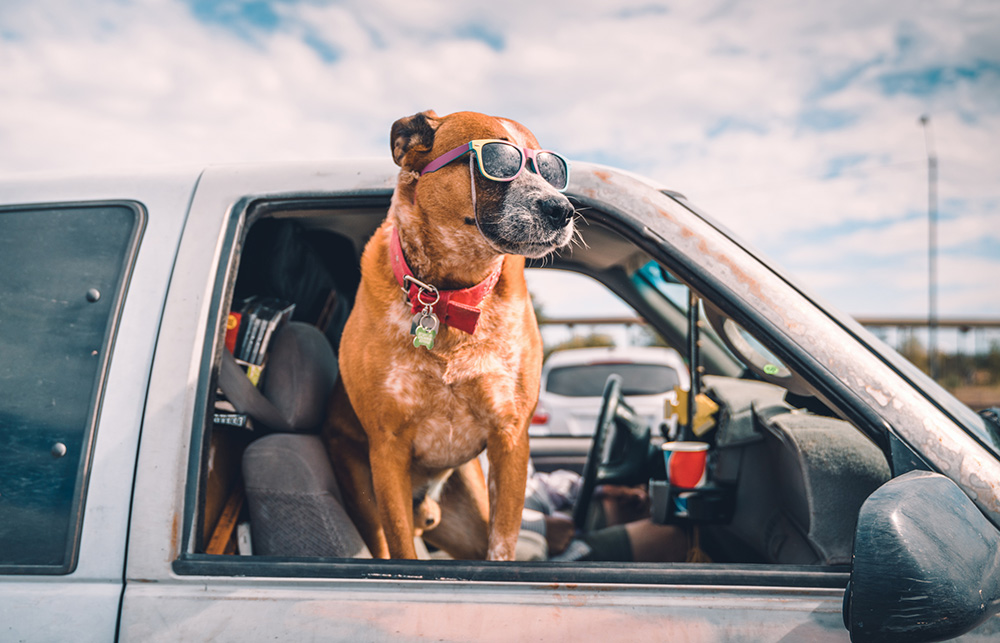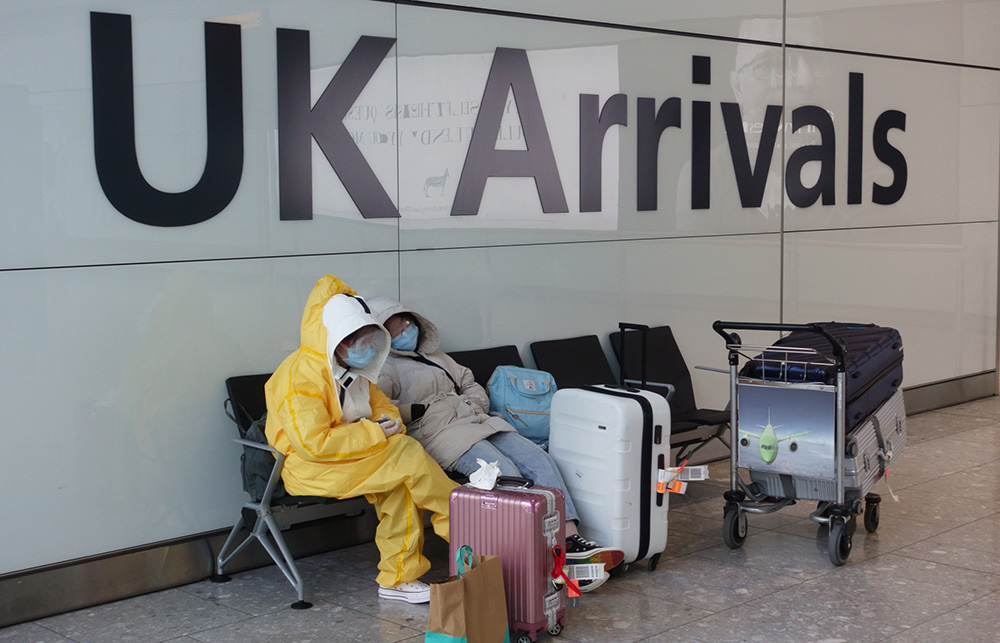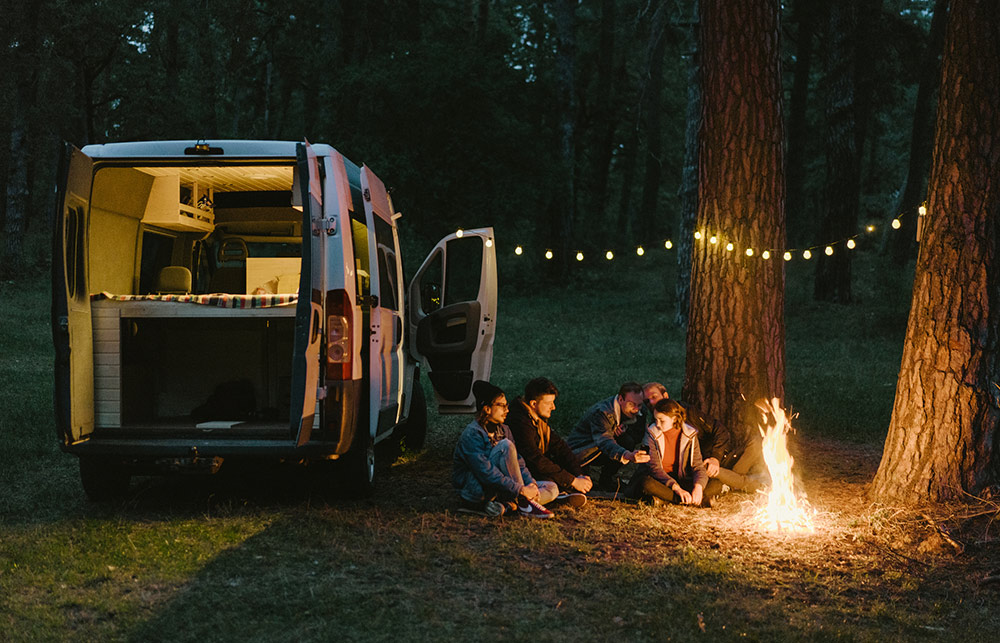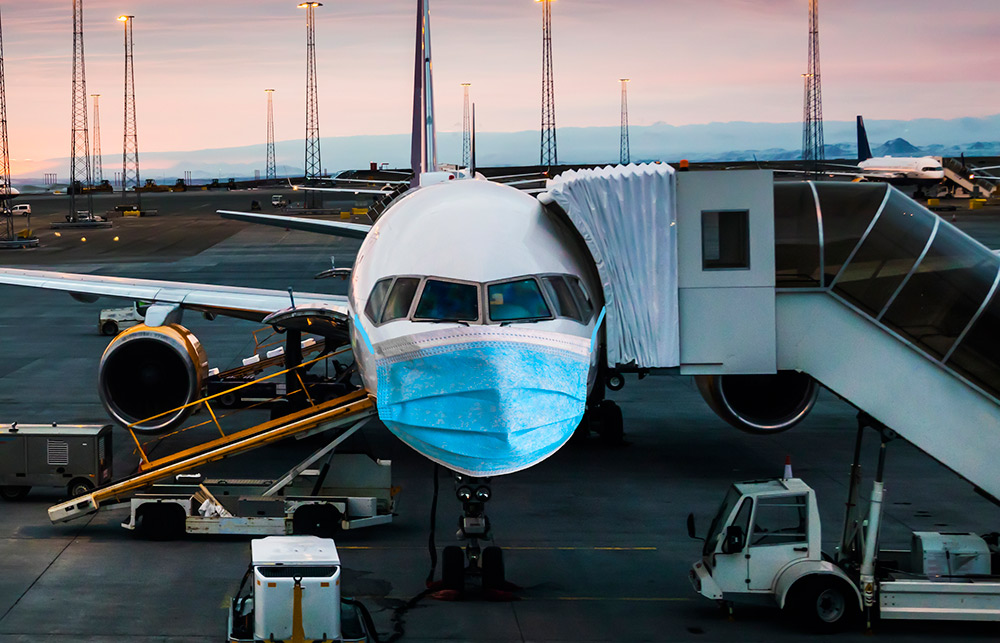很多美国人今夏还想去度假,他们可能去哪?
有分析师指出,美国人很可能会选择在离家更近的地方度假。
美国的一些地区正在重启经济,但疫情的威胁仍然真真切切,无所不在。尽管如此,经过几个月的禁闭,许多美国人都难以抵抗盛夏风光的诱惑,他们迫切地渴望走出家门,去享受任何形式的假期,无论其长短。
但是,人们毕竟害怕感染病毒,再加上出国游面临重重限制,而且谁都不想在旅途中或回国后被强制隔离。有鉴于此,市场研究公司eMarketer的高级分析师贾丝明•恩贝格指出,大多数收拾好行李的美国人很可能会选择在离家更近的地方度假。
“境内游,尤其是自驾游,将是今年最受欢迎的休闲旅游形式。”恩贝格说,“这将抑制2020年的数字旅游销售额,因为境内游的花费通常比出国游少得多。”
这家市场研究公司预计,相较于2019年的2084.4亿美元,美国2020年的数字旅游销售额(意指住宿、航空、租车和邮轮等行业的在线预订总量)将下降44.7%,跌至1152.7亿美元。数字旅游业可能要等到2022年才能恢复到疫情爆发前的水平,届时美国的销售额预计将增长49.7%,达到2088亿美元。
不过,在人们接种新冠疫苗之后,数字旅游业有望迎来井喷式增长。包括美国国家过敏和传染病研究所的所长安东尼•福奇博士在内,许多专家都指出,成功的疫苗可能会在2020年年底或2021年问世。因此,eMarketer预测美国明年的数字旅游销售额将增长21%。

再次上路
包括本地和长途旅行在内的自驾游,将成为今年夏天美国最主要的境内游方式。有些人开始倾向于驾驶房车和露营车出行,即使他们从来都没有想过自己会成为这种类型的度假者。这是因为许多人觉得在车内这样一种可控的环境中更有安全感,而且他们现在更注意保持社交距离。对一些美国人来说,汽车无疑是最简单、最安全,也可能是最实惠的交通选择。
致力于挑战传统信用卡支付的金融服务商Affirm表示,从4月到5月,旅游支出飙涨86%;自6月1日以来,旅游支出继续保持高增长态势,每周增长约30%。Affirm目前拥有530万客户,其中超过一半是千禧一代或Z世代成员。根据这家公司最近对1500名18岁-39岁消费者所做的调查,许多人今年仍然会选择外出度假。
最重要的一点是:在新冠疫情爆发前,受访者最看重度假带来的放松感,其次是娱乐感。现在,安全感几乎和放松感一样重要。近一半的受访者(49%)表示,在本地的“就地避难”政令解除之后,他们会更加频繁地驾车出行。
国家公园和海滩城镇将成为极富吸引力的旅游目的地,因为大批旅行者希望沐浴在和煦的阳光下,大口呼吸新鲜空气,尽情领略自然美景。但像纽约市、洛杉矶、旧金山和华盛顿这样的大城市,可能不会像往年这个时候那样迎来蜂拥而至的游客。最明显的原因是,高人口密度使得人们很难保持社交距离,而在疫情期间,熙熙攘攘的人流会让许多游客感到不舒服。
相反,小城镇将成为人们趋之若鹜的旅游目的地。许多游客执意要去某个地方散心(或许什么地方都行),同时迫切地希望避开人群。因此,这可能是一些风景旖旎的农村小社区恢复人气、吸引大批游客光临的绝佳机会。
Tripadvisor公司的发言人伊丽莎白•莫纳汉说:“随着人们继续保持社交距离,我们发现许多旅行者都在人口稠密的城市中心之外寻找目的地。”根据这家在线旅游平台提供的数据,旅行者更有可能前往一些有助于放松身心的地方,这种可能性比疫情爆发前高出218%;近三分之二(59%)的旅行者表示,他们更愿意去某个不出名的地方,而不是热门目的地。“这意味着旅行者希望远离人群,置身于自然美景之间,或者在海滩上放松心情——碧波荡漾的海上目的地尤其令人向往。”莫纳汉解释说。
尽管如此,一些大城市还是尝试着重新吸引旅行者的目光。它们采取的一大举措是,将一些街道改为步行街,以便人们保持社交距离。

美国人不会再去欧洲旅行了——至少暂时不会
对一些幸运的美国人来说,夏天几乎是欧洲假期的代名词。然而不幸的是,今年不会出现这种情况。
欧盟于6月30日宣布,将对一些选定的国家重新开放边界,允许非必要的旅行(包括旅游和商务出差)。但美国并不在这份名单上,因为美国本土的新冠确诊病例和死亡人数仍然以危险的速度持续攀升。
“尽管欧盟决心采用协调一致的方式,但对于向哪个国家开放,以及何时开放边界等问题,欧盟内部其实存在巨大分歧,最终的决定权完全掌握在各成员国的手中。”AirHelp公司的首席法务官克里斯蒂安•尼尔森说。AirHelp是一家总部位于香港,致力于维护乘客权益的索赔管理公司。
例如,丹麦和马耳他等国仍然对部分欧盟成员国关闭边界,而且在欧盟申根区完全开放之前,这些国家不太可能允许非欧盟游客入境。“这种灵活的做法也有可能反过来应用,预计欧盟在这个夏天可能会对美国的某些州开放边界,同时严禁另一些州的旅行者进入。”尼尔森说。
无论如何,预计会增加的不仅仅是航班数量。尼尔森警告说,一旦旅游业复苏,航班延误和取消等老掉牙的问题,也可能再次增长。
“我们现在还无法确定新冠疫情什么时候能完全得到控制,因此我们认为,如果你有意在今天夏天和秋天出国旅行,你最好先‘观望’一阵子再说。”尼尔森说,“然而,随着越来越多的国家在未来几周重新开放边界,洲际旅行很可能会在秋天重现生机。”
因此,美国人不仅受到鼓励,并且已经更加倾向于在今年夏天,或者在今年剩余的时间里在北美境内旅行。
“我们发现,短途旅行正在成为许多消费者的首选。在后疫情时代,超过四分之一(28%)的消费者更倾向于乘坐短途国际航班(三到四个小时)前往目的地。”Tripadvisor的莫纳汉说,“在美国,很多消费者现在最想去的国际目的地是墨西哥和加拿大。”

你需要重新考虑是住酒店,还是住民宿
短途旅行也是一个反复出现的主题。Tripadvisor的调查结果显示,近一半(44%)的消费者更有可能选择自驾游;三分之二(61%)的消费者表示,最舒适惬意的旅行方式就是自己开车外出游玩三到五天。莫纳汉说,这可能是因为人们觉得这种旅行风险较小——与其他形式的旅行相比,自驾游能够最大限度地避免人际接触。
“包括美国在内,全球各地的旅行者都想去户外活动。随着人们开始考虑未来的旅行计划,有意从事露营、徒步旅行和划独木舟等户外活动的消费者正在急剧增长。”莫纳汉说。
Tripadvisor的调查显示,近九成(86%)的消费者在选择住宿时最看重房间的清洁程度。他们特别关心住宿提供商有没有准备洗手液等清洁设施,房间是否经过消毒处理,员工是否按时测量体温。可能是由于经历了几个月的禁闭,能够饱览户外景致的房间也很受欢迎。在在线旅游平台上,对海景房和海滩木板道沿线客房的搜索量正在呈现激增态势。
不过,常驻洛杉矶的经济型旅游评论员林赛•迈尔斯警告说,不要想当然地认为,由于焦虑的旅行者竭力避免入住爱彼迎等民宿,酒店的客房预定量就会激增。
“人们现在可能不愿意住在酒店,因为酒店无法保证客人在入住期间绝对安全无忧。”迈尔斯说,“你可能会在走廊与人擦肩而过,或与他人共乘电梯,或者不知道其他住宿者的健康状况。哪怕你采取了一切预防措施,但你的心里还是不踏实,缺乏安全感,因为酒店的客流量实在太大了。”
相反,迈尔斯预计,方便休旅车停靠的场地和露营地将成为今年夏天的热门目的地,因为“只要你住宿在休旅车内,你就永远不会没有地方可去。”
“这种旅行方式是完全无接触的。在旅途中,大多数人都不想和任何人互动。”迈尔斯说,“有了休旅车作为出行游玩的大本营,你就不需要在外面的餐厅吃饭,不需要和酒店职员打交道,也不需要在机场与他人接触。你只需要与自己同行。在空旷的公路上坐在自己的汽车内,是非常安全的。”
Tripadvisor发现,在北美和拉丁美洲,对露营地、牧场、海滩汽车旅馆,以及以划船、滑雪、皮划艇和骑马等户外活动为特色的住宿的搜索量持续增长。Affirm也表示,2020年5月的住宿销售额环比增长119%,像小屋租赁公司Getaway 和室内水上公园兼连锁酒店Great Wolf Lodge这类商家尤其受到消费者的青睐。
在能够前往欧洲或者在欧洲境内旅行的美国人当中,对村舍和城堡等住宿类型,以及以滑雪、徒步旅行和钓鱼为特色的酒店的搜索量也呈现上升势头。

航空公司将重新征收附加费
在旅游业于3月开始停摆之后,大多数航空公司都非常慷慨地放弃了航班改签和取消附加费(即使在实际的操作过程中,许多乘客都很难获得航空公司返还的积分和退款)。不要指望这种做法会永远持续下去。尽管你的飞行常客里程和会员身份应该是安全的,但航空公司很可能会重新征收这些附加费。不过,就目前而言,旅客仍然有机会享受创纪录的低票价。
“我不认为航空公司很快就会重新征收附加费。尽管商业航空公司的财务状况大多差强人意,但为了吸引旅行者,它们仍然会尽可能地保持灵活性。”前白宫旅行事务主管、华盛顿私人包机经纪商Advanced Aviation Team的首席执行官兼创始人格雷格•布鲁森-皮茨说,“就私人包机旅游而言,无论疫情发展态势如何,好的供应商都会在征收附加费和定价灵活性方面保持足够的透明度。”
考虑到目前的不确定性,AirHelp公司的尼尔森提醒旅客注意航空公司的不同政策有可能频频更迭。他指出,如果航班因为疫情原因而被迫取消,那些不希望推迟旅行的乘客就有权获得全额退款或同等价值的旅行券——具体选择哪一种补偿方式,取决于乘客自身的意愿。但在疫情爆发的最初几个月,一些航空公司只向客户提供旅行券,尽管美国交通部明令要求这些运营商提供全额退款选项。欧洲的乘客可以因为航班长时间延误、被拒绝登机和航班取消而获得补偿,但根据美国的国内法律,乘客有机会获得赔偿的情形只有两种,即航班超额预定或者在停机坪长时间延误。
“美国消费者或许可以更加灵活地改变或推迟旅行计划,而无需支付任何费用。”尼尔森说,“这种措施是完全可期的,因为航空公司认为,他们正在失去一些拿不准自己是否真的打算再次旅行的客户。”
旅行要轻装,更要精装
在疫情期间乘坐飞机时,乘客务必要做好应对一些重大变化的准备,不仅需要知道应该携带什么行李,从现在起还要留意机场方面的变化。
首先,旅行者在前往各自的机场之前,应该提前熟悉新的安全和卫生程序。例如,在许多机场,旅客将不得不自己扫描登机牌,而不是像以前那样把它交给美国运输安全管理局(TSA)派驻机场的官员。旅客还需要了解一些旨在加快安检过程的措施:即使你戴着口罩,也要做好安检人员要求你调整口罩的准备。另外,一定要主动保持社交距离。
“一般来说,由于乘飞机出行的旅客大幅减少,如今的航空旅行在某些方面变得相对容易。由于美国运输安全管理局官员人手有限,你需要更有耐心一些。口罩是必须的。机场提供的食品种类将会更加有限。”布鲁森-皮茨说,“如果你打算进行国际旅行,一定要做好情况随时可能变化的准备,包括对隔离期限的要求,以及地方和州政府所做的其他限制。如今的情势瞬息万变,整个夏天可能都会是这样。”
相关部门对随身行李的要求,也可能发生变化。尼尔森指出,务必要非常有策略地整理好随身行李,以便尽可能快地通过安检,这一点极其重要。在许多大型机场,像食物这类物品需要放在一个透明的塑料袋里,并在安检时与其他手提行李分开。建议你使用包装袋收纳你的行李,以便你把所有必要的物品——比如登机牌,以及像洗漱用品这种需要拿出来接受X射线扫描的物品——放在行李箱的最上面。此外,一定要提前了解你可以带什么东西上飞机,因为相关规定可能会因为航空公司和目的地的不同而有所差异。
“乘飞机旅行时,务必要了解你享有的权利,以及针对不同情况的政策法规。这不仅有助于你应对航班取消等状况,还能帮你尽快通过安检。”尼尔森说,“如果航空公司取消了你的航班,你可能有权获得机票报销,甚至有望领取高达700美元的经济补偿。然而,如果你是因为安检延误而错过了航班,就没有法律能帮你收回成本了。”
从强制戴口罩到旨在保持社交距离的新的座位安排(对于那些仍然采用这种做法的航空公司而言),飞机上的体验也将大不相同。但并非所有人都将获准旅行:有新冠病毒感染症状或者流感症状的乘客可能会被禁止登机。不过,尼尔森指出,他们或许有权获得经济补偿。(财富中文网)
译者:任文科
美国的一些地区正在重启经济,但疫情的威胁仍然真真切切,无所不在。尽管如此,经过几个月的禁闭,许多美国人都难以抵抗盛夏风光的诱惑,他们迫切地渴望走出家门,去享受任何形式的假期,无论其长短。
但是,人们毕竟害怕感染病毒,再加上出国游面临重重限制,而且谁都不想在旅途中或回国后被强制隔离。有鉴于此,市场研究公司eMarketer的高级分析师贾丝明•恩贝格指出,大多数收拾好行李的美国人很可能会选择在离家更近的地方度假。
“境内游,尤其是自驾游,将是今年最受欢迎的休闲旅游形式。”恩贝格说,“这将抑制2020年的数字旅游销售额,因为境内游的花费通常比出国游少得多。”
这家市场研究公司预计,相较于2019年的2084.4亿美元,美国2020年的数字旅游销售额(意指住宿、航空、租车和邮轮等行业的在线预订总量)将下降44.7%,跌至1152.7亿美元。数字旅游业可能要等到2022年才能恢复到疫情爆发前的水平,届时美国的销售额预计将增长49.7%,达到2088亿美元。
不过,在人们接种新冠疫苗之后,数字旅游业有望迎来井喷式增长。包括美国国家过敏和传染病研究所的所长安东尼•福奇博士在内,许多专家都指出,成功的疫苗可能会在2020年年底或2021年问世。因此,eMarketer预测美国明年的数字旅游销售额将增长21%。
明智地选择你的旅行伙伴。
再次上路
包括本地和长途旅行在内的自驾游,将成为今年夏天美国最主要的境内游方式。有些人开始倾向于驾驶房车和露营车出行,即使他们从来都没有想过自己会成为这种类型的度假者。这是因为许多人觉得在车内这样一种可控的环境中更有安全感,而且他们现在更注意保持社交距离。对一些美国人来说,汽车无疑是最简单、最安全,也可能是最实惠的交通选择。
致力于挑战传统信用卡支付的金融服务商Affirm表示,从4月到5月,旅游支出飙涨86%;自6月1日以来,旅游支出继续保持高增长态势,每周增长约30%。Affirm目前拥有530万客户,其中超过一半是千禧一代或Z世代成员。根据这家公司最近对1500名18岁-39岁消费者所做的调查,许多人今年仍然会选择外出度假。
最重要的一点是:在新冠疫情爆发前,受访者最看重度假带来的放松感,其次是娱乐感。现在,安全感几乎和放松感一样重要。近一半的受访者(49%)表示,在本地的“就地避难”政令解除之后,他们会更加频繁地驾车出行。
国家公园和海滩城镇将成为极富吸引力的旅游目的地,因为大批旅行者希望沐浴在和煦的阳光下,大口呼吸新鲜空气,尽情领略自然美景。但像纽约市、洛杉矶、旧金山和华盛顿这样的大城市,可能不会像往年这个时候那样迎来蜂拥而至的游客。最明显的原因是,高人口密度使得人们很难保持社交距离,而在疫情期间,熙熙攘攘的人流会让许多游客感到不舒服。
相反,小城镇将成为人们趋之若鹜的旅游目的地。许多游客执意要去某个地方散心(或许什么地方都行),同时迫切地希望避开人群。因此,这可能是一些风景旖旎的农村小社区恢复人气、吸引大批游客光临的绝佳机会。
Tripadvisor公司的发言人伊丽莎白•莫纳汉说:“随着人们继续保持社交距离,我们发现许多旅行者都在人口稠密的城市中心之外寻找目的地。”根据这家在线旅游平台提供的数据,旅行者更有可能前往一些有助于放松身心的地方,这种可能性比疫情爆发前高出218%;近三分之二(59%)的旅行者表示,他们更愿意去某个不出名的地方,而不是热门目的地。“这意味着旅行者希望远离人群,置身于自然美景之间,或者在海滩上放松心情——碧波荡漾的海上目的地尤其令人向往。”莫纳汉解释说。
尽管如此,一些大城市还是尝试着重新吸引旅行者的目光。它们采取的一大举措是,将一些街道改为步行街,以便人们保持社交距离。
乘客穿着厚重的防护服抵达英国。
美国人不会再去欧洲旅行了——至少暂时不会
对一些幸运的美国人来说,夏天几乎是欧洲假期的代名词。然而不幸的是,今年不会出现这种情况。
欧盟于6月30日宣布,将对一些选定的国家重新开放边界,允许非必要的旅行(包括旅游和商务出差)。但美国并不在这份名单上,因为美国本土的新冠确诊病例和死亡人数仍然以危险的速度持续攀升。
“尽管欧盟决心采用协调一致的方式,但对于向哪个国家开放,以及何时开放边界等问题,欧盟内部其实存在巨大分歧,最终的决定权完全掌握在各成员国的手中。”AirHelp公司的首席法务官克里斯蒂安•尼尔森说。AirHelp是一家总部位于香港,致力于维护乘客权益的索赔管理公司。
例如,丹麦和马耳他等国仍然对部分欧盟成员国关闭边界,而且在欧盟申根区完全开放之前,这些国家不太可能允许非欧盟游客入境。“这种灵活的做法也有可能反过来应用,预计欧盟在这个夏天可能会对美国的某些州开放边界,同时严禁另一些州的旅行者进入。”尼尔森说。
无论如何,预计会增加的不仅仅是航班数量。尼尔森警告说,一旦旅游业复苏,航班延误和取消等老掉牙的问题,也可能再次增长。
“我们现在还无法确定新冠疫情什么时候能完全得到控制,因此我们认为,如果你有意在今天夏天和秋天出国旅行,你最好先‘观望’一阵子再说。”尼尔森说,“然而,随着越来越多的国家在未来几周重新开放边界,洲际旅行很可能会在秋天重现生机。”
因此,美国人不仅受到鼓励,并且已经更加倾向于在今年夏天,或者在今年剩余的时间里在北美境内旅行。
“我们发现,短途旅行正在成为许多消费者的首选。在后疫情时代,超过四分之一(28%)的消费者更倾向于乘坐短途国际航班(三到四个小时)前往目的地。”Tripadvisor的莫纳汉说,“在美国,很多消费者现在最想去的国际目的地是墨西哥和加拿大。”
驾驶房车出游的休闲时光会卷土重来吗?
你需要重新考虑是住酒店,还是住民宿
短途旅行也是一个反复出现的主题。Tripadvisor的调查结果显示,近一半(44%)的消费者更有可能选择自驾游;三分之二(61%)的消费者表示,最舒适惬意的旅行方式就是自己开车外出游玩三到五天。莫纳汉说,这可能是因为人们觉得这种旅行风险较小——与其他形式的旅行相比,自驾游能够最大限度地避免人际接触。
“包括美国在内,全球各地的旅行者都想去户外活动。随着人们开始考虑未来的旅行计划,有意从事露营、徒步旅行和划独木舟等户外活动的消费者正在急剧增长。”莫纳汉说。
Tripadvisor的调查显示,近九成(86%)的消费者在选择住宿时最看重房间的清洁程度。他们特别关心住宿提供商有没有准备洗手液等清洁设施,房间是否经过消毒处理,员工是否按时测量体温。可能是由于经历了几个月的禁闭,能够饱览户外景致的房间也很受欢迎。在在线旅游平台上,对海景房和海滩木板道沿线客房的搜索量正在呈现激增态势。
不过,常驻洛杉矶的经济型旅游评论员林赛•迈尔斯警告说,不要想当然地认为,由于焦虑的旅行者竭力避免入住爱彼迎等民宿,酒店的客房预定量就会激增。
“人们现在可能不愿意住在酒店,因为酒店无法保证客人在入住期间绝对安全无忧。”迈尔斯说,“你可能会在走廊与人擦肩而过,或与他人共乘电梯,或者不知道其他住宿者的健康状况。哪怕你采取了一切预防措施,但你的心里还是不踏实,缺乏安全感,因为酒店的客流量实在太大了。”
相反,迈尔斯预计,方便休旅车停靠的场地和露营地将成为今年夏天的热门目的地,因为“只要你住宿在休旅车内,你就永远不会没有地方可去。”
“这种旅行方式是完全无接触的。在旅途中,大多数人都不想和任何人互动。”迈尔斯说,“有了休旅车作为出行游玩的大本营,你就不需要在外面的餐厅吃饭,不需要和酒店职员打交道,也不需要在机场与他人接触。你只需要与自己同行。在空旷的公路上坐在自己的汽车内,是非常安全的。”
Tripadvisor发现,在北美和拉丁美洲,对露营地、牧场、海滩汽车旅馆,以及以划船、滑雪、皮划艇和骑马等户外活动为特色的住宿的搜索量持续增长。Affirm也表示,2020年5月的住宿销售额环比增长119%,像小屋租赁公司Getaway 和室内水上公园兼连锁酒店Great Wolf Lodge这类商家尤其受到消费者的青睐。
在能够前往欧洲或者在欧洲境内旅行的美国人当中,对村舍和城堡等住宿类型,以及以滑雪、徒步旅行和钓鱼为特色的酒店的搜索量也呈现上升势头。
有些航空公司强烈建议乘客戴口罩,有些则要求乘客必须这样做。根据美国疾病控制和预防中心的指导方针,在无法保持社交距离的公共场合,每个人都要戴口罩。
航空公司将重新征收附加费
在旅游业于3月开始停摆之后,大多数航空公司都非常慷慨地放弃了航班改签和取消附加费(即使在实际的操作过程中,许多乘客都很难获得航空公司返还的积分和退款)。不要指望这种做法会永远持续下去。尽管你的飞行常客里程和会员身份应该是安全的,但航空公司很可能会重新征收这些附加费。不过,就目前而言,旅客仍然有机会享受创纪录的低票价。
“我不认为航空公司很快就会重新征收附加费。尽管商业航空公司的财务状况大多差强人意,但为了吸引旅行者,它们仍然会尽可能地保持灵活性。”前白宫旅行事务主管、华盛顿私人包机经纪商Advanced Aviation Team的首席执行官兼创始人格雷格•布鲁森-皮茨说,“就私人包机旅游而言,无论疫情发展态势如何,好的供应商都会在征收附加费和定价灵活性方面保持足够的透明度。”
考虑到目前的不确定性,AirHelp公司的尼尔森提醒旅客注意航空公司的不同政策有可能频频更迭。他指出,如果航班因为疫情原因而被迫取消,那些不希望推迟旅行的乘客就有权获得全额退款或同等价值的旅行券——具体选择哪一种补偿方式,取决于乘客自身的意愿。但在疫情爆发的最初几个月,一些航空公司只向客户提供旅行券,尽管美国交通部明令要求这些运营商提供全额退款选项。欧洲的乘客可以因为航班长时间延误、被拒绝登机和航班取消而获得补偿,但根据美国的国内法律,乘客有机会获得赔偿的情形只有两种,即航班超额预定或者在停机坪长时间延误。
“美国消费者或许可以更加灵活地改变或推迟旅行计划,而无需支付任何费用。”尼尔森说,“这种措施是完全可期的,因为航空公司认为,他们正在失去一些拿不准自己是否真的打算再次旅行的客户。”
旅行要轻装,更要精装
在疫情期间乘坐飞机时,乘客务必要做好应对一些重大变化的准备,不仅需要知道应该携带什么行李,从现在起还要留意机场方面的变化。
首先,旅行者在前往各自的机场之前,应该提前熟悉新的安全和卫生程序。例如,在许多机场,旅客将不得不自己扫描登机牌,而不是像以前那样把它交给美国运输安全管理局(TSA)派驻机场的官员。旅客还需要了解一些旨在加快安检过程的措施:即使你戴着口罩,也要做好安检人员要求你调整口罩的准备。另外,一定要主动保持社交距离。
“一般来说,由于乘飞机出行的旅客大幅减少,如今的航空旅行在某些方面变得相对容易。由于美国运输安全管理局官员人手有限,你需要更有耐心一些。口罩是必须的。机场提供的食品种类将会更加有限。”布鲁森-皮茨说,“如果你打算进行国际旅行,一定要做好情况随时可能变化的准备,包括对隔离期限的要求,以及地方和州政府所做的其他限制。如今的情势瞬息万变,整个夏天可能都会是这样。”
相关部门对随身行李的要求,也可能发生变化。尼尔森指出,务必要非常有策略地整理好随身行李,以便尽可能快地通过安检,这一点极其重要。在许多大型机场,像食物这类物品需要放在一个透明的塑料袋里,并在安检时与其他手提行李分开。建议你使用包装袋收纳你的行李,以便你把所有必要的物品——比如登机牌,以及像洗漱用品这种需要拿出来接受X射线扫描的物品——放在行李箱的最上面。此外,一定要提前了解你可以带什么东西上飞机,因为相关规定可能会因为航空公司和目的地的不同而有所差异。
“乘飞机旅行时,务必要了解你享有的权利,以及针对不同情况的政策法规。这不仅有助于你应对航班取消等状况,还能帮你尽快通过安检。”尼尔森说,“如果航空公司取消了你的航班,你可能有权获得机票报销,甚至有望领取高达700美元的经济补偿。然而,如果你是因为安检延误而错过了航班,就没有法律能帮你收回成本了。”
从强制戴口罩到旨在保持社交距离的新的座位安排(对于那些仍然采用这种做法的航空公司而言),飞机上的体验也将大不相同。但并非所有人都将获准旅行:有新冠病毒感染症状或者流感症状的乘客可能会被禁止登机。不过,尼尔森指出,他们或许有权获得经济补偿。(财富中文网)
译者:任文科
Some regions across the United States are reopening their economies, but the threat of COVID-19 is still very real and very prevalent. Nonetheless, after months of lockdown and with summer in full swing, many Americans are desperate to get out of their homes for any kind of vacation, long or short.
But fears of infection, foreign travel restrictions, and the desire to avoid a quarantine period—either while in transit or at home upon return—will likely keep most of those who pack their bags closer to home, suggests eMarketer senior analyst Jasmine Enberg.
“Domestic travel—particularly car trips—will be the most popular form of leisure travel this year,” Enberg says. “And that will depress digital travel sales in 2020, as domestic trips tend to cost less than international travel.”
The market research firm projects that digital travel sales (online bookings for accommodations, air travel, car rentals, cruises, etc.) in the U.S. will drop by 44.7% in 2020 with total sales tallying $115.27 billion—compared with $208.44 billion in 2019. Digital travel sales will likely not reach pre-virus levels until 2022, when they are expected to grow by 49.7% to reach $208.8 billion in the U.S.
Still, strong growth is expected post-vaccine, and many experts—including Dr. Anthony Fauci, director of the National Institute of Allergy and Infectious Diseases—have suggested that a successful vaccine could emerge in late 2020 or 2021. Thus, eMarketer forecasts digital travel sales growth of 21% next year in the U.S.
On the road again
Road trips—local and long distance—will dominate domestic travel in the United States this summer. Some people are turning to RVs and campers—even when they never thought they were those types of vacationers. That’s because many people feel safer in the car, inside controlled environments, and are now more aware of maintaining social distancing. For some Americans, the car is their easiest and safest (and possibly most affordable) transportation option.
Credit card alternative Affirm says it saw travel spending jump 86% from April to May, and travel is trending up about 30% week over week since June 1. Affirm—which has 5.3 million customers, more than half of which are millennials or members of Generation Z—recently conducted a survey of 1,500 consumers between the ages of 18 and 39, and the results suggest travel is still very much in the cards this year.
The big takeaway: Prior to COVID-19, the top priority for respondents was feeling relaxed on vacation, with feeling entertained coming a close second. Now, feeling safe is nearly just as important as feeling relaxed. And almost half of those surveyed (49%) say they will travel with their own car more often when local shelter-in-place mandates lift.
National parks and beach towns are going to be attractive destinations as travelers aim to take advantage of fresh air and nature amid warmer temperatures. But major cities like New York City, Los Angeles, San Francisco, and Washington, D.C., will probably not see the throngs of tourists they usually do at this time of year. The most obvious reason is population density, which can make social distancing difficult, leaving many tourists uncomfortable about large crowds during a pandemic.
Instead, look for a shift toward smaller cities. Many travelers who are adamant about going somewhere—maybe anywhere—are desperate to avoid crowds. So this could be a prime opportunity for the smaller, more rural communities to get back on their feet and attract tourists like never before.
“As we continue to social distance, we’re seeing many travelers searching for destinations outside of dense city centers,” says Elizabeth Monahan, a spokesperson for Tripadvisor. Travelers are 218% more likely to take a trip where they can relax compared with before the pandemic, and nearly two-thirds (59%) report they would prefer to go somewhere off the beaten path versus a popular destination, according to the online travel company. “This means travelers are looking to escape to beautiful nature and beach destinations that are great for relaxing away from crowds—especially those on the water,” Monahan explains.
Still, some big cities are going to try to get people back by making some streets pedestrian-only so that they have the ability to social distance.
No more Eurotrip for Americans—for now
For some lucky Americans, summer can be synonymous with a European vacation. Unfortunately, that’s just not happening this year.
The European Union announced on June 30 that it would begin reopening its borders for nonessential travel (including tourism and business) to a select list of countries—and the United States was not among them as cases and deaths of COVID-19 continue to climb stateside at a dangerous clip.
“The EU is determined to ensure a coordinated approach, however, there are big divides within the bloc over whom to open up to and when, and the decision-making power ultimately lies solely with individual capitals,” says Christian Nielsen, chief legal officer at AirHelp, a Hong Kong–based claims management company defending passenger rights.
For example, some countries—including Denmark and Malta—are still closed to select EU member states, and are unlikely to allow travel from outside the bloc before Europe’s Schengen area is fully open. “This type of agility could potentially also be applied the other way around, and we could see that the EU opens its borders to certain states in the U.S. and not others during the summer,” Nielsen says.
In any case, a return to more flights on the schedule are not the only things expected to increase, Nielsen warns. Age-old problems like flight delays and cancellations are also likely to go up once travel picks up again.
“As we cannot be certain when the COVID-19 pandemic will be fully under control, we believe it would be helpful to take a ‘wait and see’ approach if you’re thinking of traveling internationally this summer and fall,” Nielsen says. “However, as more and more countries are reopening their borders in the coming weeks, it seems likely that intercontinental travels may resume in autumn.”
As a result, Americans are not only encouraged but already much more inclined to travel within North America this summer and perhaps through the rest of 2020.
“We’re seeing that short-haul travel is top of mind, with over a quarter (28%) of consumers more likely to take a short international flight (three to four hours) to their destination post COVID-19,” Tripadvisor’s Monahan says. “In the U.S., the most popular international destinations consumers say they want to visit first are neighbors Mexico and Canada.”
Reconsidering hotels over Airbnb
Shorter trips to destinations closer to home are also a recurring theme. Nearly half (44%) of consumers say they are more likely to take a road trip, and two-thirds (61%) say they are most comfortable taking a road trip for three to five days, according to Tripadvisor. Monahan says this is possibly because people feel these types of trips are less risky, as they typically involve contact with fewer people than other forms of travel.
“Travelers around the globe—the U.S. included—have shown an increased interest in outdoor activities, so we’re seeing a spike in camping, hiking, and canoeing as people begin to think about future trips,” Monahan says.
Nearly nine in ten (86%) consumers say cleanliness is of utmost importance when choosing accommodations, according to Tripadvisor. Guests are looking for amenities such as hand sanitizer, and they’re concerned with how rooms are disinfected as well as the use of temperature checks for employees. And possibly reflecting months of confinement, rooms with a view are also popular, with a surge in searches for rooms with an ocean view and those along beach and boardwalk fronts.
Nevertheless, Lindsay Myers, a Los Angeles–based budget travel commentator, warns against the assumption that hotels will see a surge as anxious travelers shy away from home-sharing platforms like Airbnb.
“People may be hesitant to stay at hotels for the time being. Hotels cannot ensure absolute safety while on their premises,” says Myers. “You may pass someone in the hallway, share an elevator with people, or not know the health status of others staying at the hotel. All precautions can be taken, but there is just too much foot traffic for travelers to have a feeling of safety while staying there.”
Instead, Myers suggests recreational vehicle (RV) sites and campgrounds will see a rise in popularity this summer, as “you can never run out of places to visit while in the RV.
“This style of traveling is completely contactless. The majority of people are not going to want to interact with anybody while on the road,” Myers says. “With RVs, there is no need to eat out at restaurants, interact with a hotel clerk, or come in contact with someone at the airport when you are safe in the RV. Everything you need is traveling right along with you. You are safe inside your own vehicle while hitting the open road.”
In North and Latin America, Tripadvisor has seen a spike in searches for campgrounds, ranches, and beach motels, as well as lodgings featuring a variety of outdoor activities, such as boating, skiing, canoeing, and horseback riding. Affirm also says accommodation sales went up by 119% in May 2020, compared with the month prior, with many consumers favoring merchants such as cabin rental firm Getaway and Great Wolf Lodge, a chain of hybrid hotels and indoor water parks.
For those able to travel to and within Europe, accommodation searches for lodging types such as cottages and castles, along with hotels featuring skiing, hiking, and fishing, are also trending.
Airline surcharges will make a comeback
As travel started to shut down in March, most major airlines were generous in dropping change and cancel fees (even if the actual process of getting credit or your money back was arduous for many fliers). Don’t expect that practice to last forever. While your frequent-flier miles and status should be safe through at least 2021, surcharges for changing or canceling a ticket will eventually come back. But for the time being, travelers still have a chance at scoring record-low fares.
“I don’t think cancellation fees will come back anytime soon. Commercial airlines are not in a great position financially, and to entice travelers they will remain flexible as long as they can,” says Gregg Brunson-Pitts, a former White House travel director as well as CEO and founder of Advanced Aviation Team, an on-demand private jet charter brokerage in Washington, D.C. “In terms of private charter travel, good providers will be transparent in terms of cancellation and pricing flexibility, regardless of a pandemic.”
Given the uncertainty right now, AirHelp’s Nielsen warns travelers should be prepared for the fact that airlines’ different policies often can be subject to change. Passengers whose flights were canceled owing to the pandemic but who do not wish to postpone their travel are supposed to be entitled to full refunds or an equivalent travel voucher, depending on their decision, Nielsen notes. But in the early months of the pandemic, some airlines provided clients with vouchers only, even though the U.S. Department of Transportation issued a statement mandating the offer of a refund. While passengers in Europe can get compensated for long delays, denied boarding, and cancellations, U.S. passengers are covered only for overbookings or long tarmac delays under domestic law.
“U.S. consumers might have increased flexibility in terms of changing and postponing travel plans without paying fees,” Nielsen says. “This move can be expected from airlines that think they’re losing customers who are unsure about whether they will really want to travel again.”
Pack light, pack smarter
Passengers should prepare themselves for some substantial changes while flying during a pandemic, from knowing what to pack to what to expect from now on at the airport.
First and foremost, travelers should familiarize themselves with new safety and hygiene procedures before heading to a respective airport. For example, at many airports, travelers will have to scan their boarding passes themselves instead of handing it over to the TSA officer as before. It is also helpful to know what to expect during the security check to help speed up the process: Even if you’re wearing a face mask, be prepared for the possibility that the officer will ask you to adjust it during screening. Also, be sure to practice social distancing proactively.
“Generally speaking, because there are less people traveling, air travel in some ways is a bit easier right now. More patience is required because TSA is operating at a limited capacity. Masks are a must. Food options will be more limited in airports,” Brunson-Pitts says. “If you’re traveling internationally, be prepared that things could change at any minute—including required quarantine periods and other local and state restrictions. It’s a very fluid situation and will probably remain so through the summer.”
Hand-carry regulations may also have changed. Nielsen says it’s extremely important to pack hand luggage strategically to make it through security in the fastest time possible. At many major airports, items like food need to be carried in a clear plastic bag and separated from the rest of one’s hand luggage during screening. It’s advisable to organize hand luggage using packing cubes so that you can place all necessary items—such as a boarding pass and items like toiletries that need to be removed for X-ray screening—at the very top of your bag. And make sure to read up on what you can bring on a plane, which might vary by airline and destination.
“Knowing your rights and rules in different situations while traveling is crucial now—not just in cases where you experience flight problems like cancellations, but also to speed up security screening,” Nielsen says. “If your airline cancels your flight, you might be entitled to ticket reimbursement and even financial compensation of up to $700. However, if you missed your flight because you were delayed during security screening, there is no law that can help you recover your costs.”
The in-flight experience is going to be very different as well—from compulsory mask-wearing to new seating arrangements, promoting social distancing (for those airlines still accommodating it). But not everyone will be allowed to travel: Passengers with symptoms of COVID-19 or the flu might be prevented from boarding. Still, Nielsen notes, they may be entitled to financial compensation.













